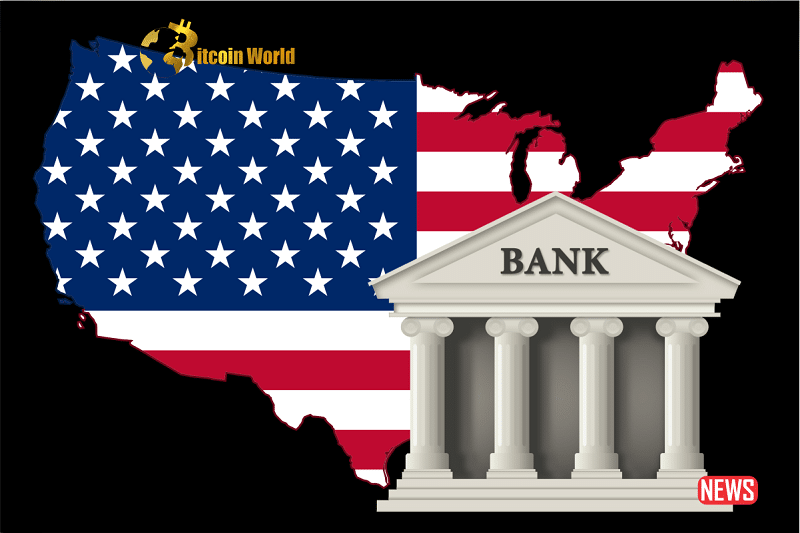Ever wondered what’s really going on behind the polished facades of America’s banking giants? Recent headlines might have you doing a double-take. Imagine this: Bank of America, JPMorgan Chase, Wells Fargo, and Citigroup – the titans of the US banking sector – are collectively sitting on a cool $205 billion in unrealized losses. Yes, you read that right. But before you start envisioning another financial crisis, let’s dive deeper into what this actually means and why these institutions might be more robust than you think.
The FDIC’s Eye-Opening Report: Unpacking the Numbers
The Federal Deposit Insurance Corporation (FDIC), the very entity designed to protect your deposits, recently released a report that laid bare these staggering figures. Let’s break down the individual numbers:
- Bank of America: Leading the pack with a hefty $100 billion in unrealized losses.
- Wells Fargo and JPMorgan Chase: Both clocking in at around $40 billion each.
- Citigroup: Rounding out the quartet with $25 billion in paper losses.
So, where do these losses come from? Think of it like this: banks invest in bonds, and the value of those bonds can fluctuate based on interest rate changes. When interest rates rise, the value of older, lower-yielding bonds can decrease. These decreases are the ‘unrealized losses’ – losses that only become real if the banks decide to sell those bonds before they mature.
Silicon Valley Bank: A Ghost of Cautionary Tales
Remember Silicon Valley Bank (SVB)? Their story serves as a stark reminder of what can happen when unrealized losses aren’t managed carefully. SVB’s downfall was triggered when they had to sell a chunk of their bond portfolio, turning those paper losses into a tangible $1.8 billion hit. This sparked panic among depositors, leading to a classic bank run. It’s a crucial example highlighting the potential risk lurking within these unrealized figures.
Why Aren’t These Banks Panicking (and Should You Be)?
Here’s the key difference: unlike SVB, banks like Bank of America are choosing not to sell their underwater bonds. They’re essentially holding onto them, waiting for them to mature and regain their original value. Think of it like holding onto a stock that’s temporarily down – you believe it will eventually bounce back.
The Federal Reserve’s Stress Test: Proof of Resilience?
But how do we know these banks can actually weather the storm? Enter the Federal Reserve and their annual stress tests. These tests put banks through simulated economic nightmares – think severe recessions, soaring unemployment, and plummeting housing prices. The goal? To see if banks have enough capital to absorb potential losses and continue lending.
The good news? Bank of America and its peers passed with flying colors. Even under these incredibly challenging scenarios, they remained above the minimum capital requirements. The stress test projected a staggering $541 billion in total losses across the banking system, yet these giants proved their ability to absorb those blows.
Unrealized Losses vs. Actual Losses: What’s the Difference?
It’s crucial to understand the distinction between unrealized and realized losses. Let’s break it down:
| Feature | Unrealized Loss | Realized Loss |
|---|---|---|
| Definition | A decrease in the value of an asset that hasn’t been sold. It’s a paper loss. | A loss incurred when an asset is sold for less than its original purchase price. |
| Impact | Doesn’t directly impact cash flow unless the asset is sold. | Directly impacts cash flow and the bank’s balance sheet. |
| Example | A bond’s market value decreases due to rising interest rates, but the bank still holds it. | A bank sells a bond for less than what it paid for it. |
Key Takeaways: What Does This Mean for You?
- Resilience in the Face of Adversity: Despite significant unrealized losses, the largest US banks have demonstrated their ability to withstand substantial financial pressures.
- Strategic Choices Matter: The contrast between Silicon Valley Bank’s forced selling and Bank of America’s holding strategy highlights the importance of asset management decisions.
- Stress Tests Provide Confidence: The Federal Reserve’s rigorous stress tests offer a degree of assurance about the stability of the banking system.
- Unrealized Doesn’t Equal Immediate Danger: Remember that unrealized losses are paper losses. The key is whether banks are forced to realize those losses by selling assets at a discount.
Looking Ahead: Navigating the Economic Landscape
While the $205 billion figure might seem alarming at first glance, it’s essential to consider the context. The US economy is dynamic, and interest rates fluctuate. These banks have sophisticated risk management strategies in place, and the stress tests provide a valuable benchmark of their resilience.
However, it’s crucial to remain vigilant. Economic conditions can change rapidly, and unforeseen events can always occur. Monitoring the performance of the banking sector and the broader economy is essential for both individuals and policymakers.
In Conclusion: Strength in Numbers (and Strategy)
The US banking sector, while grappling with substantial unrealized losses, showcases a remarkable capacity to weather financial storms. The strategic decisions of industry leaders like Bank of America, coupled with the rigorous oversight of the Federal Reserve, paint a picture of resilience. While the $205 billion figure is significant, it’s not necessarily a harbinger of doom. It’s a reminder of the complexities of the financial world and the importance of understanding the nuances between paper losses and actual financial distress. These banking giants, for now, seem to be navigating the turbulent waters with a steady hand.
Disclaimer: The information provided is not trading advice, Bitcoinworld.co.in holds no liability for any investments made based on the information provided on this page. We strongly recommend independent research and/or consultation with a qualified professional before making any investment decisions.




